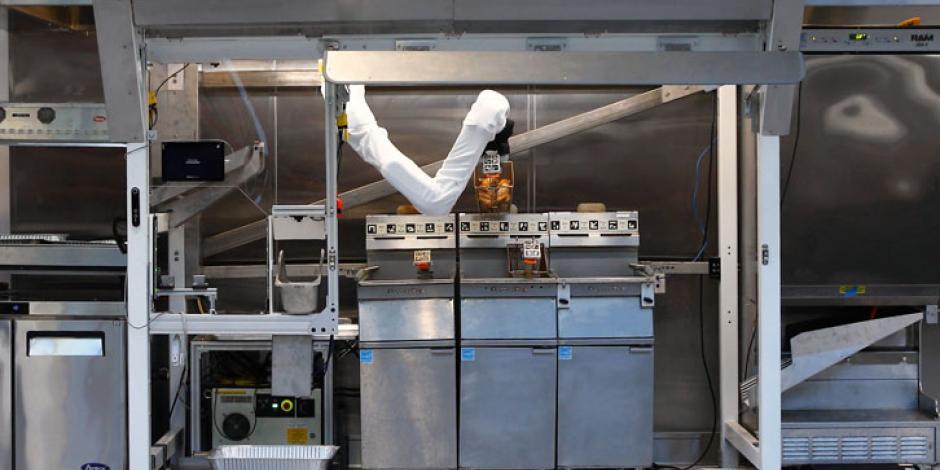Starten Sie den Audio-Text
Mit dem Audio-Player können Sie sich den Text anhören. Darunter finden Sie das Transkript.
The listening exercises in Business Spotlight Plus (p. 5) are based on the article “Being outflipped” (Names & News, p. 9). Here, we provide you with the audio file and transcript.
Click here to open the transcript
Being outflipped
From farm equipment to packaging machines, food production is already highly mechanized, but the job of cooking and serving food is usually done by humans. Over the next few years, however, a lot more robots will start working in restaurants, especially in kitchens. High labour costs are behind this trend, and fast-food restaurants, where efficiency is vitalwesentlich, unerlässlichvital, are leading the way.
A recent study by FT researchForschungResearch looked at how much money restaurants could save by replacing some human workers with robots. In Australia, for example, where the minimum wage is among the highest in the world, a ten per cent reduction in staff (six people in an average restaurant) could save $163,000 a year (based...mit Sitz in...based on a 40-hour week).
This means businesses can expect a fast paybackAmortisationpayback on investments in automation technology — like Flippy, a burger-to flip sth.etw. umdrehen, wendenflipping robotic arm that can also operate a chip fryer (UK)Fritteuse (für Pommes Frites)chip fryer. Made by the California-based company Miso, Flippy works twice as fast as a human worker with about 30 per cent more outputProduktionsleistungoutput. That certainly gives new meaning to the phrase “well doneauch: durch(gegart)well done”.


